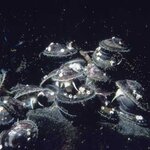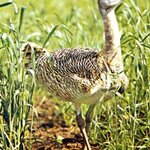
A limpet no bigger than a coin could reveal the possible fate of cold-blooded Antarctic marine animals according to new research.
Compared to their temperate and tropical cousins, cold-blooded polar marine animals are incapable of fast growth. Until now scientists assumed that a lack of food in winter was the major limiting factor. Studies of the protein-making abilities of limpets in both the sea around the British Antarctic Survey’s (BAS) Rothera Research Station and in the laboratory aquarium reveal that these animals cannot make proteins – the building blocks of growth - efficiently.
Lead…


